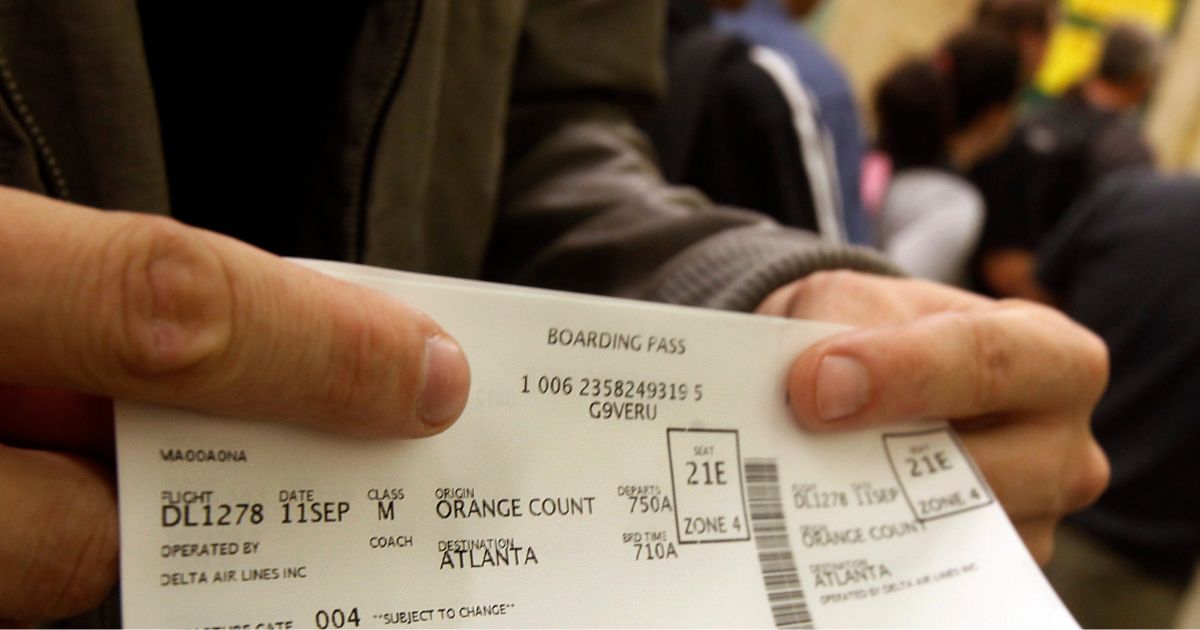A former TSA agent has strongly advised against making a common mistake while travelling. The agent took to TikTok to explain how posting a picture of your boarding pass online can lead to dire consequences. He also shared the story of one such person who missed their flight.
Harmony, who goes by the name @travelwiththeharmony on TikTok, posted a video that is now going viral. In the video, an ex-TSA agent recalled seeing another post on the platform of a girl narrating her experience with posting her boarding pass online.
The woman was excited about her travel plans as a first-time flyer and posted a picture on her Close Friends story on Instagram. On the day of her flight, she arrived at the airport only to realize that her flight had been cancelled by someone.
“Let this be a lesson to those people who got to post everything,” Harmony was heard warning in the TikTok video. He also explained how if you plan on posting your boarding pass online, you should make sure to hide your confirmation number. The former TSA agent also advised covering up all “sensitive information.”
According to the Partners Universal International Research Journal, more than 140,000 photos are posted under the hashtag #boardingpass on Instagram. Cyber criminals and hackers can easily access your personal information to change the details of your trip with the information on your boarding pass.
Quick PSA: if you’re getting a flight, don’t post a photo of your boarding pass online. The barcode contains your booking reference which can be used to log in to many airlines’ “manage your booking” page with just your surname, no password. This is very bad! Airlines don’t care! pic.twitter.com/3oOUfuVjUl
— Matt Eason (@MattEason) March 12, 2024
The booking reference or Passenger Name Record (PNR) number on your boarding pass should be kept confidential and not shared at all times. Posting the number online can lead to identity fraud while giving cyber criminals access to confidential information.
The Transportation Security Administration issues warnings that travelers should try their best to pay heed to. One scam the agency cautions against is plugging your phone into the charging stations. Doing so might lead to your phone being hacked by a hacker.
Family vacations run on sunscreen, snacks, and batteries. So, watt are the rules?
Carry-on those lithium batteries and no loose spares in checked bags.
Don’t let your trip short-circuit, check out the “What Can I Bring?” tool: https://t.co/mte8sovgzp pic.twitter.com/GvDCyG4yjD
— TSA (@TSA) May 27, 2025
A recent guideline that the TSA has implemented involves lithium batteries. The agency has prohibited passengers from carrying lithium batteries in their checked bags. The batteries being in the checked-in bags puts them at risk of starting a fire.
Concealing and omitting passport numbers and legal names where it’s visible to the public eye is something every traveler should practice. Frequently monitoring financial transactions for an unauthorized charge that is related to a previously booked flight is also advised.
Freezing your credit reports if you are going to be travelling for a longer period of time, as proactive fraud prevention could be beneficial.













